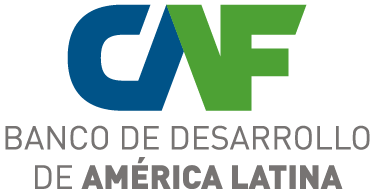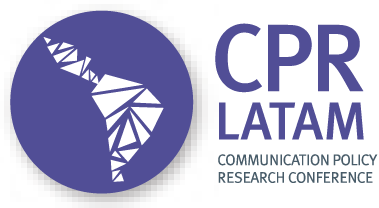Thanks to the joint effort of different organizations and main companies of the region, the congress is a great opportunity to bring together all the industry players that work to improve and enhance the telecommunications services and benefits throughout the region.
The fifth version of the Latin American Congress of Telecommunications is possible thanks to ASIET, CAF, GSMA, ITU and kindly hosted by the Commission of Communications´ Regulation– CRC of and the Ministry of Information Technology and Communication – MinTIC of Colombia and supported by organizations such as ANTV, ANE, ISOC, LACNIC, ICANN, LACTLD and CPR Latam.
The meeting, which includes a great variety of meetings and conferences will bring together authorities, executives and high-level delegates in Cartagena de Indias. Among the special guests there will be the Ministries of Telecommunications of the region, regulatory agencies, congressmen, operator companies, equipment and services suppliers, consultants and related press.
Without doubt this event will be essential for the development of a common agenda for which all these organizations work every day.

The Inter-American Telecommunication Commission was born in 1982 under the name of AHCIET. Its constituents are public and private companies from the telecommunications sector that operate in countries of the Americas. We work in pro of developing of telecommunications and the Information Society in our region through public-private dialogs, promoting industry growth and favoring knowledge and best practices’ exchange, safeguarding our associates’ and the industry’s common interests.
We act as facilitators of public-private cooperation, promoting policies that favor the development of communications to position the industry as a strategic governments’ ally, fostering multi-stakeholder dialog on public telecommunications that promote the sector’s development, strengthening the industry’s capacity for technical analysis, supporting the development of the digital ecosystem and innovation, as well as promoting intra-industrial cooperation.

CAF is a development bank created in 1970, owned by 19 countries – 17 of Latin America and the Caribbean, Spain and Portugal- as well as 13 private banks in the region. It promotes a sustainable development model through credit operations, non-reimbursable resources, and support in the technical and financial structuring of projects in the public and private sectors of Latin America. CAF is a competitive financial institution, client-oriented, sensitive to social needs, and supported by a highly specialized staff. Additionally, CAF’s Integral Agenda for Sustainable Development serves as a framework for the actions of the institution and aims to achieve continuous, high, sustainable and quality growth in Latin America.
With its headquarters in Caracas, Venezuela , CAF has offices in Buenos Aires, La Paz, Brasilia, Bogota, Quito, Madrid, Mexico D.F, Panama City, Asuncion, Lima, Montevideo and Port of Spain.

La GSMA representa los intereses de los operadores móviles de todo el mundo, reuniendo a casi 800 operadores con unas 300 compañías del amplio ecosistema móvil. Estas empresas incluyen fabricantes de teléfonos y dispositivos móviles, empresas de software, proveedores de equipamiento y empresas de internet, así como también organizaciones de sectores adyacentes de la industria. La GSMA también organiza eventos líderes de la industria como el Mobile World Congress, Mobile World Congress Shanghai, Mobile World Congress Americas y la serie de conferencias Mobile 360.
Para más información, visite el sitio corporativo de la GSMA en www.gsma.com. Siga a la GSMA en Twitter: @GSMA.

The UIT is the specialized entity in the United Nations for Information and Communications Technologies – ICT.
We assign the radio-electric spectrum and the satellite orbits at the global scale, we produce technical standards to ensure continuous inter-connection of networks and technologies and we strive to improve access to the ICTs of communities with poor services throughout the world.
The UIT is committed to connecting all the world population, wherever they may live and whatever the means they may have. Our work protects and support the fundamental right of all to communicate.

The Communications Regulatory Commission is the regulatory body responsible for regulating the postal, Internet, fixed and mobile telephony service markets in Colombia, promoting the provision of efficient ICT services to serve the users in the country, based on the development and harmonization of standards that guarantee the quality of the telecommunications services. For more information please visit www.crcom.gov.co

The Ministry of Information and Communications Technologies is the institution responsible for designing, adopting and promoting policies, plans, programs and projects of the Information and Communications Technologies sector in Colombia. It promotes massive access, effective use and appropriation of ICTs, in order to improve the quality of life of all Colombians and a sustainable development of the country.

The National Spectrum Agency is the institution in charge of planning, allocating, monitoring and controlling the radio spectrum in Colombia, it also provides technical advise for its efficient management and promotion of knowledge in the field.

The National Television Authority is the institution responsible for providing tools to execute the plans and programs for the provision of public television services, intended to oversee access to television, guarantee pluralism of information, competition and service efficiency.

CPR LATAM’s International Conference was previously held in Buenos Aires (2007), New York (2008), Mexico City (2009), Brasilia (2010), Lima (2011), Valparaiso-Chile (2012), Mexico City and Oaxaca (2013), Bogota (2014) and Cancun (2015 and 2016). The next conference will be held in Cartagena, Colombia, on June 22-23, 2017 in coordination with the Congreso Latinoamericano de Telecomunicaciones. The purpose of this conference is to bring together scholars, members from the private sector and regulators to learn from the studies and experiences that all of them have encountered as they work in the field of ICT policy.

























